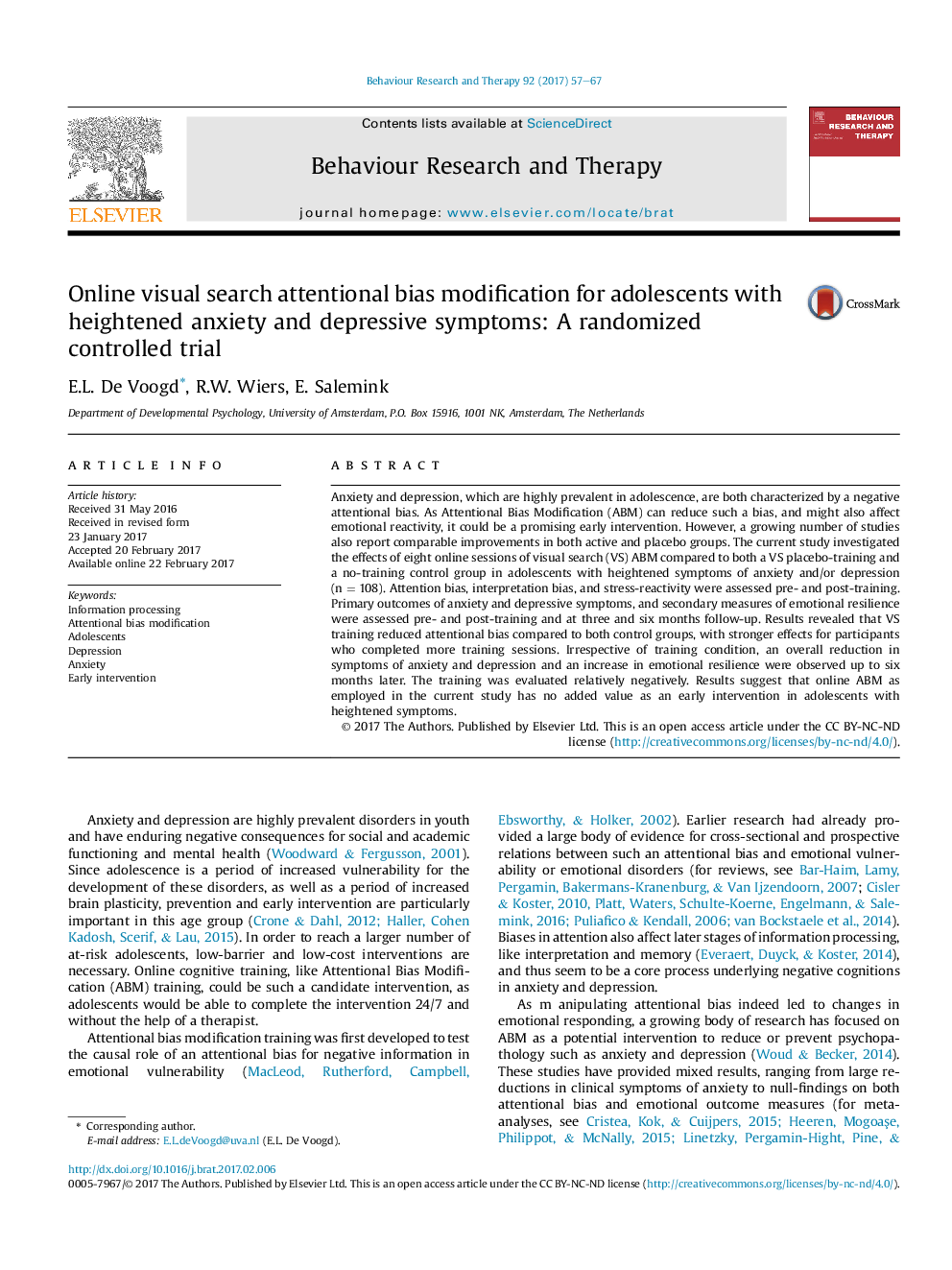ترجمه فارسی عنوان مقاله
اصلاح تعصب توجه بالینی برای نوجوانان مبتلا به علائم اضطراب و افسردگی شدید: یک مطالعه کنترل شده تصادفی
عنوان انگلیسی
Online visual search attentional bias modification for adolescents with heightened anxiety and depressive symptoms: A randomized controlled trial
| کد مقاله | سال انتشار | تعداد صفحات مقاله انگلیسی |
|---|---|---|
| 123796 | 2017 | 11 صفحه PDF |
منبع

Publisher : Elsevier - Science Direct (الزویر - ساینس دایرکت)
Journal : Behaviour Research and Therapy, Volume 92, May 2017, Pages 57-67
ترجمه کلمات کلیدی
پردازش اطلاعات، اصلاح تعصب توجه نوجوانان، افسردگی، اضطراب، مداخله زودهنگام،
کلمات کلیدی انگلیسی
Information processing; Attentional bias modification; Adolescents; Depression; Anxiety; Early intervention;

